NAVYPEDIA
 Support the project with paypal
Support the project with paypal
Photo

T3 1931 Many thanks to Wolfgang Stöhr for additional information on this page.
Ships
| Name | No | Yard No | Builder | Laid down | Launched | Comp | Fate |
|---|---|---|---|---|---|---|---|
| T1 (ex-Tb 76T), 1945- Голешница [Goleshnitsa] | 468 | STT, San Marco, Austria-Hungary | 6/1913 | 15.12.1913 | 7/1914 // 9.1919 | captured by Italy 4.1941 (T1), returned 12.1943, stricken 10.1959 | |
| T2 (ex-Tb 77T) | 469 | STT, San Marco, Austria-Hungary | 8/1913 | 30.1.1914 | 8/1914 // 9.1919 | BU 1939 | |
| T3 (ex-Tb 78T) | 470 | STT, San Marco, Austria-Hungary | 10/1913 | 4.3.1914 | 8/1914 // 9.1919 | captured by Italy 4.1941 (T3) | |
| T4 (ex-Tb 79T) | 471 | STT, San Marco, Austria-Hungary | 12/1913 | 30.4.1914 | 9/1914 // 9.1919 | wrecked 1932 |
Technical data
| Displacement normal, t | 262 |
|---|---|
| Displacement full, t | 320 |
| Length, m | 57.3 pp 58.2 oa |
| Breadth, m | 5.70 |
| Draught, m | 1.50 |
| No of shafts | 2 |
| Machinery | 2 Parsons steam turbines, 2 Yarrow boilers |
| Power, h. p. | 5000 |
| Max speed, kts | 28 |
| Fuel, t | coal 24 + oil 18 |
| Endurance, nm(kts) | 980(16) |
| Armament | 2 x 1 - 66/27 G. L/30 K.09, 1 x 1 - 8.3/66, 2 x 2 - 450 TT |
| Complement | 52 |
Standard scale images

T3 1941
Graphics
Project history
Technical project on designing of seaworthy torpedo boat has been made by Austro-Hungarian Navy early 1910. Basic requirements were: 500-550t displacement, steam turbines as main engines, 30kts speed with possibility of running at this speed within 16hrs, 4 single 66mm guns and 3 450mm TTs. In June, 1910 there were presented three projects from STT, Hanz Danubius and CNT. All of them were similar enough among themselves and mismatched the shown requirements: 250t displacement, 28kts speed within 10hrs, 2 66mm/30 Škoda guns and 3 single or 2 twin 450mm TTs. With a view of economy Naval HQ agreed on displacement reduction, but stored the requirement of 30kts speed. Further coordination lasted more than a year, but finally seamen had to agree on reduction of speed to 28kts. Nevertheless, torpedo boats were characterised as exclusively successful and were built by largest class for Austro-Hungary (27 ships), including three groups. 16.1.1912 STT received order for 8 ships (74T-81T; letter T means "Trieste"), in February, 1913 16 ships (82F - 97F; "F" means "Fiume") were ordered to Hanz Danubius, building was conducted in Fiume and Porto Ré; 5.7.1913 CNT received an order on 3 ships (98M-100M; "M" means "Monfalcone"). At division of former Austro-Hungarian fleet in 1920 8 torpedo boats were transferred to Yugoslavia, 7 to Romania, on 6 to Greece and Portugal. Yugoslavia received 4 boats of 1st and 4 boats of 2nd series. They had relative data, but significantly differed on appearance, in particular, first were one-funneled, and second had two funnels. The forecastle on 1st series was a little above, that ensured with better seaworthiness. Bow TT placed between forecastle break and bridge. The rated power was 5000hp, maximally ships of 1st group reached up to 5700hp, and 2nd up to 6000hp. On trials all torpedo boats exceeded contract speed, but to the Second World War beginning they reached about 20kts.
Modernizations
1920s, all: - 2 x 1 - 66/27; + 2 x 1 - 66/47 Škoda, 1 x 1 - 8.3/67.
Naval service
T4 (ex-79T) was stricken in 1932 after wrecking. Survived boats in April, 1941 were captured by Italian troops and commissioned by Italian Navy under former numbers. T1 in late 1943 was returned to Yugoslavian Government in exile, and since 1945 were commissioned by new Navy of Yugoslavian Republic as Golesnica. T3 in September, 1943 was captured by Germans and commissioned by Kriegsmarine as TA48, she was lost 20.2.1945.
Many thanks to Wolfgang Stöhr for additional information on this page.
 HOME
HOME FIGHTING SHIPS OF THE WORLD
FIGHTING SHIPS OF THE WORLD YUGOSLAVIA / SERBIA
YUGOSLAVIA / SERBIA TORPEDO SHIPS
TORPEDO SHIPS T1 torpedo boats (1914/1919)
T1 torpedo boats (1914/1919)
